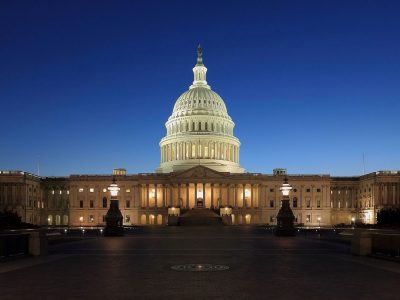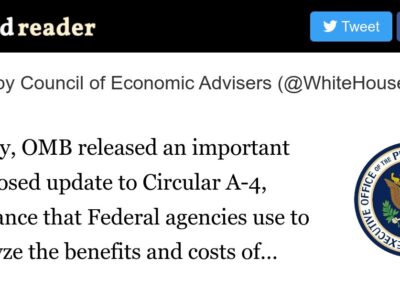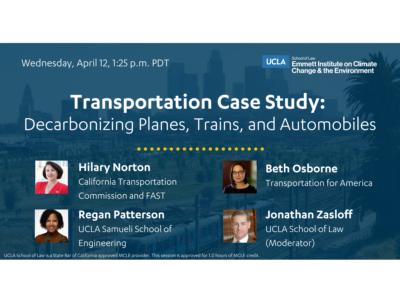Federal Climate Policy
EPA’s Power Plant Rule is Not Bold. It’s What’s Required.
It’s important to remember the regulatory history—and the growing urgency—of limiting climate change-related carbon pollution from power plants.
Today’s the day for the long-awaited release of Environmental Protection Agency regulations to tackle planet-warming pollution by the nation’s power plants. (Read the announcement here and the full text here.) The EPA is proposing a new standard for fossil fuel-fired power plants to avoid 617 million metric tons of carbon dioxide through 2042. For weeks, …
Continue reading “EPA’s Power Plant Rule is Not Bold. It’s What’s Required.”
CONTINUE READINGThe Energy Transition and the Working Class
Is Biden right? Can we attack climate change while uplifting the lives of workers?
In most of the world, May 1 is International Worker’s Day. It celebrates the collective struggle of workers for better wages and working conditions. That made me start thinking about the efforts that have been made to unite climate action with the interests of workers. That has been a particular emphasis of the Biden Administration …
Continue reading “The Energy Transition and the Working Class”
CONTINUE READINGJob-Killing Rollbacks
The GOP debt ceiling bill is a dagger aimed at the American economy. (Not to mention the planet)
The debt ceiling bill passed by House Republicans would eliminate tax credits for new emissions credits for nuclear energy, renewable energy manufacturing, domestic sourcing of electric vehicle components, hydrogen production and extensions of the wind and solar production credits. It was a remarkable smackdown of American industry and, if enacted, a big win for foreign …
Continue reading “Job-Killing Rollbacks”
CONTINUE READINGThe Car Rule and the Major Questions Doctrine
Claims that the new rule violates the doctrine are groundless.
Ever since the Supreme Court decided West Virginia v. EPA, conservatives and industry interests have claimed that just about every new regulation violates the major question doctrine. When the Biden Administration ramped up fuel efficiency requirements through 2026, ideologues such as the Heartland Institute and states like Texas were quick to wheel out this attack. …
Continue reading “The Car Rule and the Major Questions Doctrine”
CONTINUE READINGUnprecedented Legal Questions
The climate crisis is unprecedented. So is its legal fallout.
In teaching my class on Climate Law, I’ve been struck by how many new legal questions courts are confronting as a result of the climate crisis. Dealing with these new legal questions is going to put stress on existing legal doctrines and require courts to rethink some basic principles. Unfortunately, the Supreme Court is pushing …
Continue reading “Unprecedented Legal Questions”
CONTINUE READINGThe Debt Ceiling and the Environment
GOP demands would devastate environmental protection
Kevin McCarthy sketched the outlines of his opening demand to raise the debt limit last week, and the bill has now been released. If adopted, it would have a devastating impact on environmental protection and climate action. One impact would be budgetary – repealing much of the Inflation Reduction Act while kneecapping EPA’s ability to …
Continue reading “The Debt Ceiling and the Environment”
CONTINUE READINGThe Revenge of the Lawyers
Economists ousted lawyers (and law) from their central role in the regulatory process. That’s changing.
As you’ve probably heard, the Biden Administration has proposed aggressive new targets for greenhouse gas emissions from new vehicles. That’s great news. One really important aspect of the proposal relates to the justification for the proposal rather than the proposal itself. Following a recent trend, the justification is based on the factors specified by Congress …
Continue reading “The Revenge of the Lawyers”
CONTINUE READINGRevamping Cost-Benefit Analysis
Proposed changes will make CBA more climate friendly.
Last week, the Biden White House released proposed changes in the way the government does cost-benefit analysis. CBA has been a key part of rule making for forty years. The proposal is very technical and low-key, but the upshot will be that efforts to reduce carbon emissions will get a leg up. In particular, the …
Continue reading “Revamping Cost-Benefit Analysis”
CONTINUE READINGCan the New Climate Laws Transform our Transportation Infrastructure?
The IIJA and IRA will spend a lot of money on transportation—but whether they’ll create fundamental change in our infrastructure or continue business as usual will depend on how that money is used.
This is the last in our series of posts previewing the Emmett Institute’s 2023 Symposium, coming up on April 12. Check out the first post, introducing some of the big questions around the IIJA and IRA, the second post, on transmission infrastructure, and RSVP for the Symposium here! Transportation is one of the most complicated …
Continue reading “Can the New Climate Laws Transform our Transportation Infrastructure?”
CONTINUE READINGU.S. Climate Law: A Broad & Rapidly Growing Field
There’s a lot of law relating to climate change. A lot!
In preparing to teach a course on climate law, I was really struck by how broad and rich the field has become. Back in the day, it was nearly all international law, but nowadays there’s a huge amount of U.S. domestic law. Most people, even those who work on the field, tend to focus on …
Continue reading “U.S. Climate Law: A Broad & Rapidly Growing Field”
CONTINUE READING












